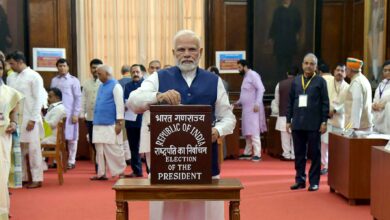Google will not accept election ads for Philippine elections

Bangkok, Dec 1 (EFE).- Tech giant Google said Wednesday it will not accept election advertisements on its platforms during the campaign for the presidential elections on May 9 in the Philippines, where social media has been accused of promoting misinformation.
In a statement, Google’s subsidiary in the Philippines said that the measure, which will be in effect between February 8 and May 9, 2022, will apply to the Google search engine, Youtube and other associated platforms.
The company underlined that it will include all advertisement promoting or opposing any political party or candidate running for public office.
Google added it will take part in initiatives to promote electoral participation, citizens’ access to useful information, and educational workshops and help protect the integrity of the elections.
The company had adopted similar measures during campaigns for a federal election in Canada in 2019 and another election in Singapore in 2020.
Philippine journalist Maria Ressa, winner of the 2021 Nobel Peace Prize, has claimed that social media have contributed to the rise of misinformation in the Philippines, as well as to polarize society.
Ressa, in an interview with EFE last month, alleged that Ferdinand “Bonbong” Marcos, son of dictator Ferdinand Marcos, has managed to increase his popularity and promote his candidacy for the presidency thanks in part to his misinformation campaign.
The team of Marcos and Sara Duterte-Carpio, who is running for vice president and is the daughter of President Rodrigo Duterte, are favorites in the polls.
Bongbong Marcos has embarked on a revisionism campaign to conceal or minimize torture and oppression during his father’s regime, while President Duterte is being investigated by the International Criminal Court for alleged crimes against humanity committed during his bloody anti-drug war.
The current vice president, Leni Robredo, Rodrigo Duterte’s rival, is the second favorite in the polls.
The offices of president and vice president are voted on separately in the Philippines, so it is possible that they belong to different parties and are political rivals. EFE
grc/sc





